About Eugene Gastroenterology Consultants
Eugene Gastroenterology Consultants are collectively committed to serving the entire Eugene-Springfield community and beyond by providing the highest quality care as an independent, single-specialty group.
Located in Springfield, Oregon, Eugene Gastroenterology Consultants was established in 1977 and is the largest medical group specializing in gastroenterology south of Portland. Our doctors are board-certified in a full range of diagnostic and therapeutic gastrointestinal procedures. Patient and referral physician satisfaction is of paramount importance to us.
Our patient procedures are performed at either Oregon Endoscopy Center, adjacent to our clinic, or Sacred Heart Medical Center RiverBend Hospital Special Procedures Area.
We look forward to seeing you.
Gastroenterology involves the diagnosis and treatment of disorders of the digestive system. These disorders may affect the esophagus, stomach, small intestine, large intestine (colon), rectum, liver, bile ducts, gallbladder and pancreas. A gastroenterologist is a physician who is trained in both internal medicine and the sub-specialty of gastroenterology. Diseases we diagnose and treat:
Barrett’s Esophagus
Biliary Disease
Celiac Sprue
Colon Polyps
Diverticulosis/Diverticulitis
Gallstones
Gastroesophageal Reflux Disease
Inflammatory Bowel Disease (Crohn’s, Ulcerative Colitis)
Irritable Bowel Syndrome
Liver Disease/Cirrhosis
Pancreatic Disease
Peptic Ulcer Disease
Small Bowel Disease
Viral Hepatitis (A/B/C)
As members of the Oregon Cancer Alliance, we work closely with leading cancer specialists to provide coordinated expert care. Alliance physician teams collaborate to provide every patient the very best care and patients are guided through the treatment pathway by trained navigators using expedited scheduling.
Accreditation
Oregon Endoscopy Center is AAAHC accredited, meaning that it participates in on-going self-evaluation, peer review and education to continuously improve its care and services. The center also commits to a thorough, on-site survey at least every three years, performed by AAAHC surveyors who are also healthcare professionals. Learn more about AAAHC.
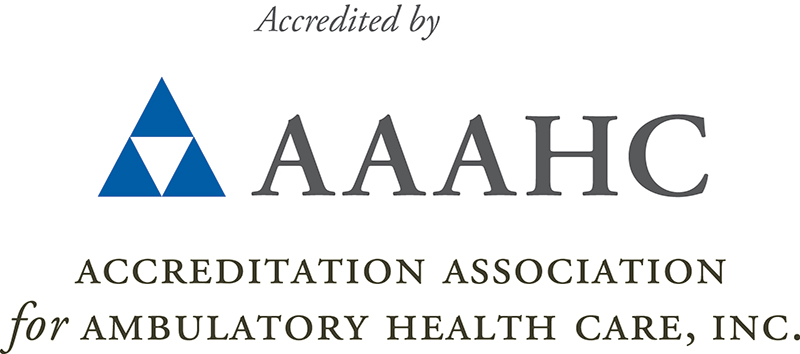
Adenoma Detection Rate
The ADR standards vary between sexes, as women, on average, grow fewer adenomas than men. Multi-society guidelines and Centers for Medicare and Medicaid support an ADR minimum of 25% for a mixed-gender population (20% in women and 30% in men).
Oregon Endoscopy Center ADR 2023 All Genders
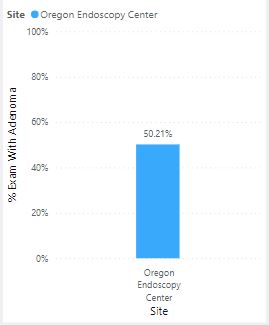
Oregon Endoscopy Center ADR 2023 Females
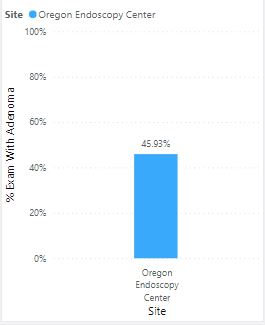
Oregon Endoscopy Center ADR 2023 Males
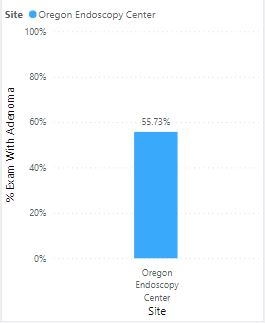
Cecal Intubation Rate
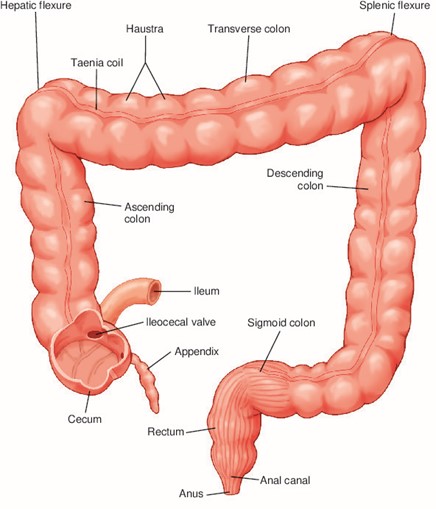
Withdrawal Time

Complications
The post-polypectomy bleed rate for colonoscopies performed at Oregon Endoscopy Center in 2023 was 0.9/1000 cases (0.09%) or 1 in 1072.
The perforation rate for colonoscopies performed at Oregon Endoscopy Center in 2023 was 0.09/1000 cases (0.009%) or 1 in 10,575.


